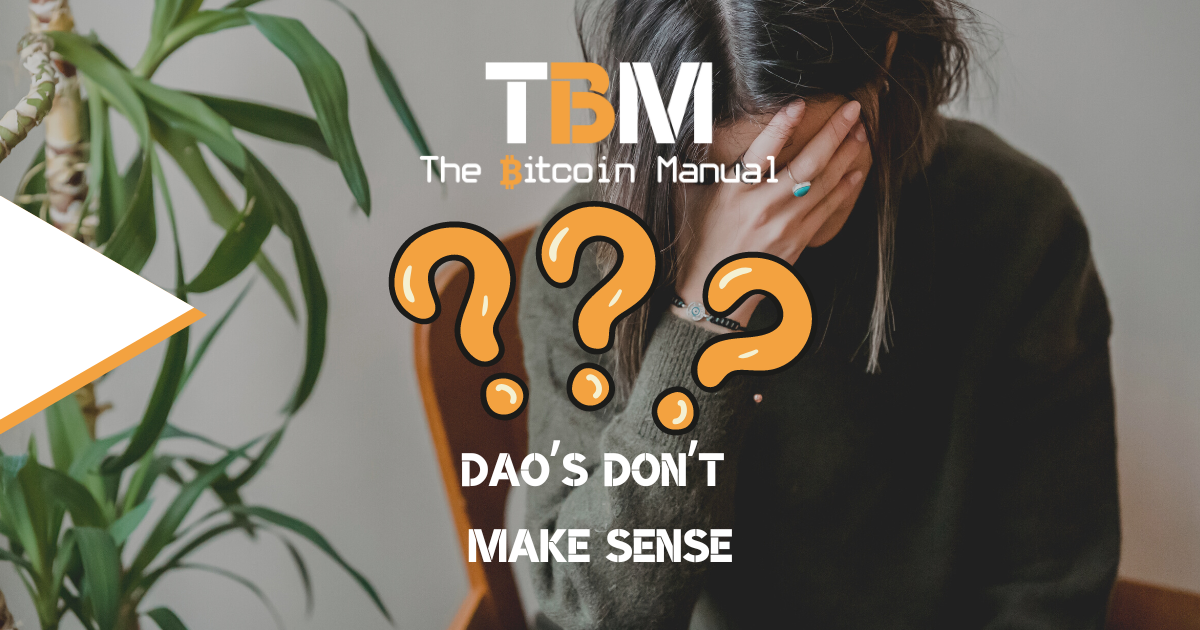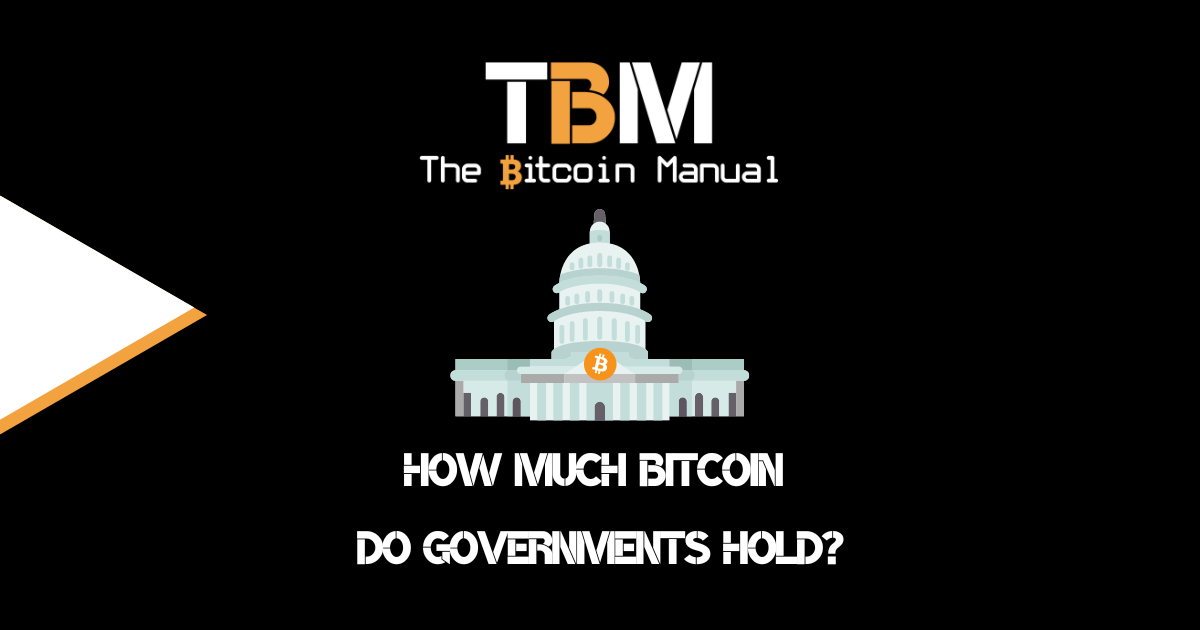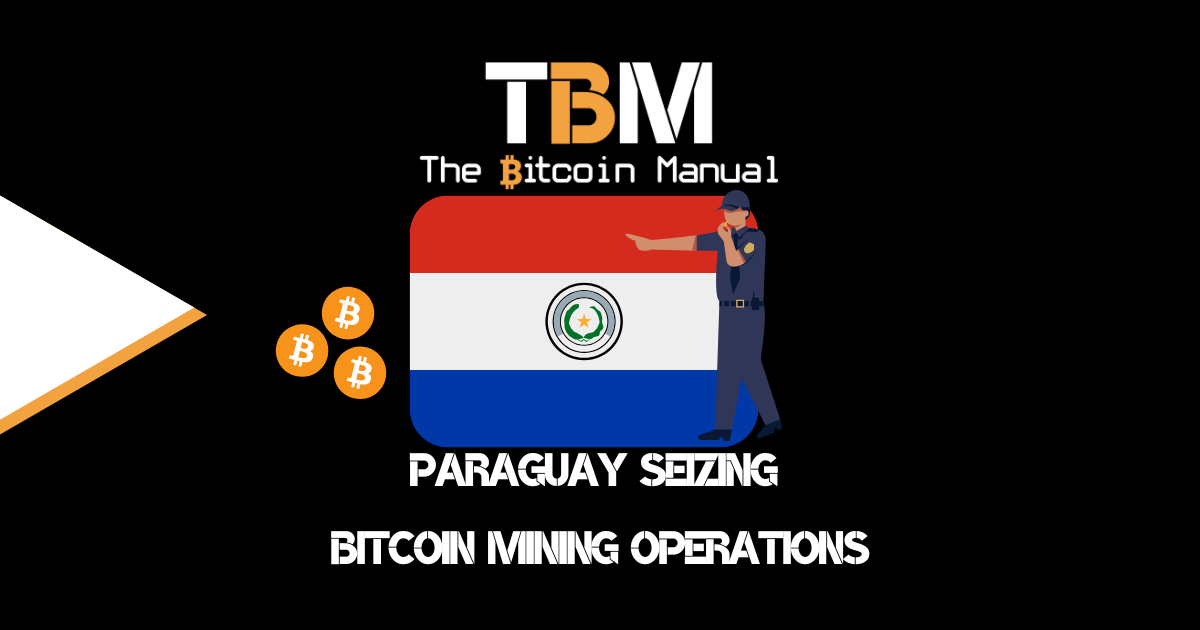Although the next era of the internet hasn’t been defined, pioneers in the bitcoin space are hard at work, building a set of self-sovereign tools for individuals and businesses to operate across borders with either no trust or certain trust assumptions. Even with bitcoin’s immutable layer underpinning these solutions, there are still many hurdles to overcome. Businesses and projects in bitcoin will fail over the next decade; the ones that remain will grow stronger off the learnings of others and the code contributions left behind.
That’s how a free market works and how bitcoin leverages creative destruction to weed out weak points over time. Now, as this process unfolds, you will find others who feel bitcoin’s restrictions aren’t conducive to making money right now and want to build in a world free from constraints, and that’s where the altcoin or rather a shitcoin market comes into play.
The shitcoin market feels like playing wack-a-mole; every time you smash one three-letter acronym for raising money, you have no idea what you plan to do with it other than pay insiders before it all collapses and another one pops up. ICOs, IDOs, IEOs, NFTs and now DAOs.
Despite NFTs taking up a lot of the headlines over the last two years, DAOs have been no slouch, with deep DAO claiming that there are over 4826 of these organisations currently created on one of many chains. A DAO (pronounced dow) is pitched as an organisational structure built with blockchain and a smart contract, often described as a sort of crypto co-op or a group chat with a publicly known bank account.
As is the case with anything crypto, there are elements of truth patched together with a lot of assumptions that a blockchain can enforce anything outside the fact that it can record numbers in a database. Still, in the interest of breaking down these assumptions, let’s take a look at how DAOs are meant to work.
What is a DAO?
A DAO, or “Decentralized Autonomous Organisation,” is meant to be a community-led entity with no central authority. It is pitched as fully autonomous and transparent: smart contracts lay the foundational rules, execute the agreed-upon decisions, and at any point, proposals, voting, and even the code can be publicly audited. Ultimately, a DAO is governed entirely by its members, who collectively make critical decisions about the project’s future, such as technical upgrades and treasury allocations.
A DAO is like a startup company that raises community funds. Still, instead of simply running with the idea that attracted the funds in the first place, the DAO requests guidance from community members who hold their tokens, adding further complexity and friction in decision-making.
Community members create proposals about the future operations of the protocol and then come together to vote on each proposal. Proposals that achieve some predefined level of consensus are then accepted and enforced by the rules instantiated within the smart contract.
A DAO is pitched as a way to flatten familiar hierarchical structures seen within large corporations and give way to community collaboration under this framework. Each member of the DAO oversees the protocol at some level. It reminds me a lot of those MLM schemes, where the marketing is centred around you being your own boss. Still, the reality is you’re an agent working on commission trying to dump the product on people or bring more investors in to cater to your complex compensation plan set by the MLM.
The way I see DAO marketing is tapping into the already established hustle culture and tokenising it. Instead of going out and building a business, you can own a piece of a business and pretend to make decisions in the business as a token holder.
Since DAOs can come in different shapes or forms, they can easily be applied to any niche that interests those who subscribe to hustle culture and get them to part with their money as they become micro “seed investors”.
While early DAOs were all about raising money to create tools like exchanges or collateralised stablecoins, today, it’s expanded into a much of categories, like:
- Protocol DAOs
- Grant DAOs
- Philanthropy DAOs
- Social DAOs
- Collector DAOs
- Venture DAOs
- Media DAOs
- SubDAOs
Voting has always been flawed
Unsurprisingly DAOs work on tokens; these tokens make you a “stakeholder” for services rendered and have three functions. You can use them within the DAO as payment for whatever services it provides; you can hold them to benefit from the price appreciation hopefully or use their ballots to make decisions within the organisation, which will hopefully lead to price appreciation. DAO governance tokens borrow some elements from public shares. Still, they offer you none of the protections because it’s not a regulated security since it gets to play in this unregulated space.
In A DAO, those who own the most tokens have a louder voice, as DAOs tend to use a “1 token = 1 vote”. In principle, this means people who own the most tokens stand a chance of losing more due to poor governance decisions and are thus more engaged. In practice, It’s more of decentralised theatre as the team issuing the token can always keep a stake that can never be diluted and remain in control.
When DAOs aren’t centrally controlled, they quickly become a shitshow of indecisiveness, and nothing gets done because the slightest bit of democracy shows its flaw in practice. To run an efficient company at scale, you need leaders, you need centralisation, and the bigger a company gets, the more a hierarchy is needed to retain order; DAOs are trying to fight against a natural organisational structure that emerges out of efficiently and in doing so kills any hope of it competing with the more efficient competition.
Giving away your strategic advantage
I’m sure having an organisation’s decisions and work recorded on blockchains for all to see sounds great and looks great on paper; I mean, what do we have to hide? It’s all out in the open. All investors can see where the money is going, so what’s the problem?
TMI, that’s what, Too Much Information.
Firstly, linking a wallet to a DAO means that anyone and everyone can see every transaction made with that wallet. Put another way: imagine if all your co-workers could see every transaction going in and out of your bank account because that is also the one your company sends your salaries to. This would lead to chaos. One could solve this by mixing services and collaborative transactions, which adds complexity and co-ordinator. It not only dox anyone working for its financial privacy but shows all members who earn what, which can create envy, and you’ll see higher labour turnover rates.
Secondly, and more importantly, the nature of DAOs means that their stakeholders are vulnerable to off-chain coercion. It only takes one DAO token holder to show poor judgment and low social literacy to bring the DOA under fire. It makes them perfect targets for social engineering schemes. Once tokens are acquired by nefarious actors, they can be used to influence decisions and perhaps gain control of a DAO and its millions.
Identifying individual contributors on blockchains may also invite unwelcome individual consequences for work done on behalf of the DAO, which in turn may discourage the kind of risk-taking that may lead to technological breakthroughs.
Finally, if you compete against another DAO or centralised company, they can scrape your on-chain data to see your entire game plan. If you can see what your competitors are spending and what they are spending it on, It becomes rather easy to outperform them or develop strategies based on that information.
DAOs are regulatory arbitrage
Some DAOs have found that decentralised, blockchain-based governance is messier than it looks. and despite the millions raised through DAOs, many of them went up in flames amid a host of legal, governance and security problems. Since there is no legal framework for these things, anyone can spin one up and promise the world and try to raise capital and pretend to involve the token holders.
This might work in the medium term and allow the insiders and maybe a few “employees” to net an income. Still, DAOs will also face legal trouble if regulators decide that the tokens they issue are securities, thus requiring them to go through the same registration process as a company selling stocks or bonds. In 2017, the Securities and Exchange Commission found that DAO Tokens, the native token of The DAO, passed the Howey Test and were, in fact, securities and should have been subject to securities law.
A honeypot for hackers
DAO hacks are nothing new; in fact, the ETH people cheer on today was born from A DAO hack, and yet 7 years later, it seems as if this market has not learned from those failures. DAO, like any smart contract platform on a public blockchain, cannot account for every rule that must be put in place to protect funds and add new features required to keep the DAO operational.
Every time the contract is upgraded, new possible flaws are introduced, and if the kitty inside the DAO reaches a point that seems interesting enough to poke around, that flaw can and will be exposed. As a DAO, you’re actively encouraging participants to come and attack your treasury, and in the business world, that is not a smart play.
If you honestly think a DAO could take on a centralised company and win, it won’t be a fair fight; the moment a company loses market share, it now pays for them to find someone willing to introduce or find a bug in your DAO and take your DAO down.
Alternatively, they could just beat you at the money game; since everything is open, they can outbid you for talent, and they could outspend you in marketing or acquire certain resources to the point that burns your DAO runway.
DAOs have plenty of points of attack, and they cannot all be accounted for, and some can never be resolved.
A solution looking for a problem
DAOs take the concept of online communities, which have always been insane places that aren’t fit for focused financial gain and try to apply financial and technological rules to them. I don’t see how this makes a community any better. DAO creators have this idea that they can automate human cooperation through code and continuously forget that organisations, whether the framework is on a blockchain or on a piece of legal government paper or not, are human endeavours. No amount of money and tech changes this. We believe in people and leaders in missions. We also need to care for the people in the organisation.
DAOs are nothing but a means of raising capital, but they have yet to find a way to use that capital efficacy, and to me, this is ultimately where it stops. I have argued with DAO proponents who love to use the Chewbacca defence that nothing makes sense, so let us be, and we will change the world, but I have yet to hear or see a way that it changes anything but giving a Ponzi a new lick of paint.
DAO, more like DOA (Dead On Arrival)
The reason I think DAOs have not yet been seen as an issue is due to their size; we haven’t reached a point where all these problems become apparent. Since DAOs are usually taken out by a hack, scam or human greed after a few months or become more centralised over time to enable better decision-making, they really don’t seem like they will ever get to a point where they hold substantial capital that would make one systemic if one should fail.
I believe that DAOs have no future; they will continue to fail forward, and new ones will get spun up with a new goal, narrative and token to boot and sucker in naive and idealistic investors with the promise of yield, future growth and “ownership” in the shared success of the project. The truth is the only ones sharing in the success are the insiders creating the governance tokens, while the rest all share in the inevitable failure of the DAO.
The insiders get to benefit off of seigniorage in creating their own money as they allow others to fund their experiment with new concepts that have built nothing of value and will never birth anything of value. Once you cut through all the jargon and marketing, A DAO is merely another ICO with extra steps.
What “DAO,” you think?
So what do you think of DAOs? Is there a future for this technology, or is it simply the latest iteration of digital snake oil designed to unburden retail of their money? Let us know in the comments below.





2 Responses
Seems to work for Bisq
Yes, Bisq works, I don’t see it competing with anything by any scale, Bisq Dao is fine for what it does and doesn’t pretend it’s going to overtake all exchanges like the shitcoin DAOs